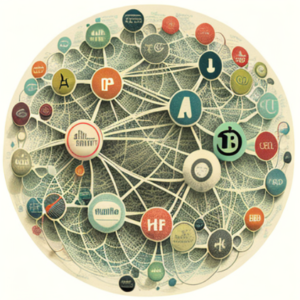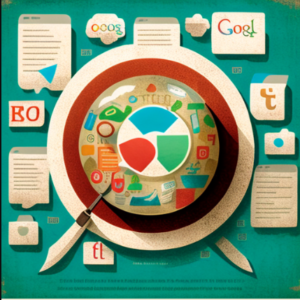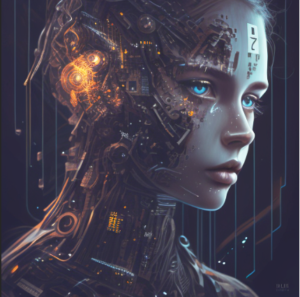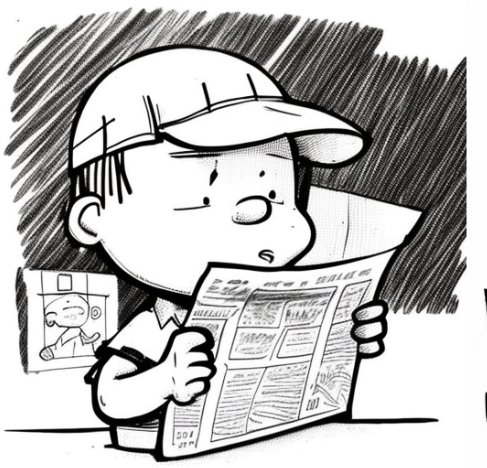 Premise: Publishers hastened their own demise when they put their content on the internet for free. Artificial intelligence is one more nail in the coffin.
Premise: Publishers hastened their own demise when they put their content on the internet for free. Artificial intelligence is one more nail in the coffin.
To follow along with the argument, think of the history of the internet in these broad stages.
 1. The worldwide web. Independent websites were connected by an informal and disorganized network of links. Publisher revenue depended on ads, which depended on traffic, which depended on good link strategies. Publisher content was available on its own branded site.
1. The worldwide web. Independent websites were connected by an informal and disorganized network of links. Publisher revenue depended on ads, which depended on traffic, which depended on good link strategies. Publisher content was available on its own branded site.
Publishers were chumps by accepting and encouraging the assumption that content should be free, supported by advertising.
2. The search engine. Content continues to be housed on individual websites, but readers can query a search engine and get a list of the most relevant content rather than relying on links. Search engine results still point to websites where the information is housed. It’s “out there,” but finding it has been centralized.
 Publishers were chumps because Google amassed billions using their content. Publishers often paid to play the search engine game.
Publishers were chumps because Google amassed billions using their content. Publishers often paid to play the search engine game.
3. Facebook. Content continues to sit on independent websites, but it’s also fed into walled gardens like Facebook. Publishers get chump change for their content and Facebook makes billions. The model is “all your customers become our customers.” Content isn’t organized by brand, but by a network of friends and by whatever algorithm makes Facebook the most money (using content created by other people).
Publishers were chumps because they allowed sites like Facebook to use their content to build someone else’s business model.
4. AI. This is just the next logical step, but it also represents an important change. Before AI, it mattered where content came from. After AI, it doesn’t. It’s not indexed by a search engine, recommended by friends, or identified by a brand in any way. It’s sucked into a language model that gives the user an answer without any reference to the source. The publisher has become invisible and gets no credit.
 Publishers’ original sin has come home to roost. This was the inevitable result of putting content on the internet for free.
Publishers’ original sin has come home to roost. This was the inevitable result of putting content on the internet for free.
The advent of AI-generated content raises some interesting questions.
- Would this trajectory have been avoided if publishers had not exposed their content in the first place?
- Did publishers make the right decision anyway? Maybe they were chumps, but they got some revenue as they rode the wave into the sharp rocks on the shore.
- Can we put the genie back in the bottle? If publishers now choose to protect their content with paywalls and thereby starve AI of professional information, will that devalue AI engines to the point that people will prefer information from humans?
- Is there a revenue model where the people who create the content that feeds the AI model get some benefit for the answer produced by the AI?
So what’s a publisher to do? Read this: “The publisher of the gaps.”
Note: That publishers should not have been exposing their content for free has been a hobby horse of mine for decades, but the immediate inspiration for this post is the “Death of the link” episode on the People vs. Algorithms podcast.
Prefer to listen? I discuss all the articles in the latest Krehbiel Letter in my Krehbiel Letter Podcast.




